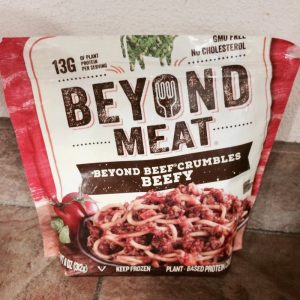In the same way, we’re now horrified people used to smoke in offices, we’ll soon find it almost unthinkable that people used to consume so much meat.

Meat is dead. Carnivores are going the way of cigarette smokers and, by 2050, there’s a good chance that it will be socially unacceptable to eat meat. In the same way that we’re now horrified people used to smoke in offices and airplanes, we’ll find it almost unthinkable that people used to consume animals so casually and frequently.
Considering that humans have been meat-eaters for about 2.5m years, the idea that we’re going to radically change our diets in a few decades might seem far-fetched. However, there has already been a significant shift in the way we think about meat consumption. In just the past few years veganism has gone from being a fringe movement associated with hippies to being downright trendy. The likes of Beyoncé and Jay-Z have challenged their fans “to move towards a more plant-based lifestyle” and more people are talking loudly and proudly about cutting down on meat.
To be fair, changes in attitude haven’t yet translated to changes in behavior. US consumption of meat in 2018 was the highest it has been for a long time, and it’s a similar story in Europe. This is largely down to a better economy; according to Rabobank, the downturn in meat-eating between 2005 and 2014 was due to high prices relative to income during the recession. But just because meat consumption in America hasn’t plummeted yet doesn’t mean it won’t in the near future. This is particularly true when you consider the explosion in popularity of realistic plant-based meat substitutes from companies such as Impossible Foods and Beyond Meat.
If you haven’t tried an Impossible Burger or Beyond Burger yet I’d strongly advise you to give it a go. As a vegetarian I have suffered through various abominations that describe themselves as a “veggie burger”, from large soggy mushrooms to patties that look like reconstituted vomit; in contrast, the new breed of plant-based burgers are a game-changer. I even sent one back at a restaurant recently because I thought they had mistakenly given me real meat – and my girlfriend, a committed carnivore, had a bite and wasn’t entirely sure herself.
Fast-food chains have begun to enthusiastically embrace plant-based meat substitutes, propelling these foods further into the mainstream. In April, Burger King started trialing the Impossible Burger in St Louis. According to a report by inMarket inSights, this led to Burger King locations in St Louis seeing 16.75% higher foot traffic than the chain’s national average. Meanwhile, the popularity of Greggs’s vegan sausage roll caused shares of the British fast-food chain to surge, and KFC recently said it is searching for plant-based alternatives to chicken. Meatless meat is suddenly everywhere.
As plant-based meat alternatives continue to proliferate and evolve it will become increasingly difficult for people to justify choosing the animal alternative. If you can easily get a meatless burger that tastes almost like the real thing – and eventually, I imagine, one tastes exactly like the real thing – why would you opt for real meat? Why would you make the crueler choice?
Along with the increase in “meatless meat,” we’re seeing the advent of the lab-grown, or cell-based, meat industry. Although there is still a fair way to go before we see lab-grown meat in stores, and important questions about just how environmentally friendly cultured meat actually is, it’s another sign that technology is poised to revolutionize how we eat. Meat that comes from animals will eventually seem old-fashioned and barbaric.
There are theories that the reason humans first started eating large quantities of meat 2.5m years was due to climate change; droughts made fruit and vegetables less abundant and humans were forced to go in search of meat. It seems inevitable that the climate crisis we now face will drastically change our diets once again. As the impact of the climate emergency becomes impossible to ignore, eating meat will be increasingly seen as selfish and socially unacceptable.

If we don’t willingly change our habits, of course, the consequences of the environmental disaster that is unfolding will force us. The climate crisis will affect the food supply in a way that means we simply won’t be able to produce meat; indeed we won’t be able to produce enough food at all. The most committed of carnivores will have to resort to eating the rich.
By Arwa Mahdawi
 Alghadeer TV Alghadeer TV
Alghadeer TV Alghadeer TV
